Two prominent billionaires and investors, Chamath Palihapitiya and Mark Cuban, are engaged in a feud on X (formerly known as Twitter) regarding the notion that companies embracing woke ideologies frequently face financial decline.
This discussion unfolds amid controversies involving major corporations like Anheuser-Busch and Target, which have encountered backlash for their backing of the LGBTQ+ community.
Chamath Palihapitiya Has Faced Backlash for His Remarks on Human Rights

Chamath Palihapitiya, the CEO of Social Capital, has been a polarizing figure in the investment world.
Formerly hailed as the “SPAC King,” he faced backlash for his remarks on human rights abuses in China and is facing a lawsuit that alleges he misled investors.
Chamath Palihapitiya Shares Bloomberg Article

In June 2023, he shared a screenshot of a Bloomberg article.
The article revealed that six southern states had, for the first time in history, outpaced the northeast corridor of Washington-New York-Boston in contributing to the U.S. gross domestic product.
If Companies ‘Go Woke’ Will They ‘Go Broke’?

However, it was his accompanying caption, “Go woke, go broke,” that sparked a heated debate, suggesting that the culture war and economic policies of northeastern states had facilitated the migration of wealth and economic power to the South.
As X users, including fellow billionaire Mark Cuban, shared their perspectives, let’s explore what the data reveals about the actual situation.
Many Companies Migrated to Southern States, Is It Because of the Woke Movement?

Bloomberg’s analysis of Internal Revenue Service data highlights the migration of wealth to the southern states. In the years 2020 and 2021, Florida, Texas, Georgia, the Carolinas, and Tennessee collectively added $100 billion in new net income.
Concurrently, the corridor spanning Washington, New York, and Boston experienced a decline of $60 billion in income during the same time frame.
10 of 15 Fast-growing States Are in the South

According to Census Bureau data, nine of the nation’s 15 fastest-growing cities were in the South in 2022, likely fueled by several corporations relocating their headquarters from the northeast to the South, accompanied by a considerable number of job opportunities.
Additionally, residents are drawn to the South by the appeal of “warmer weather, lower taxes, looser regulation, and cheaper housing,” as highlighted by Bloomberg (via Yahoo! Finance).
Woke Policies Encourage Migration
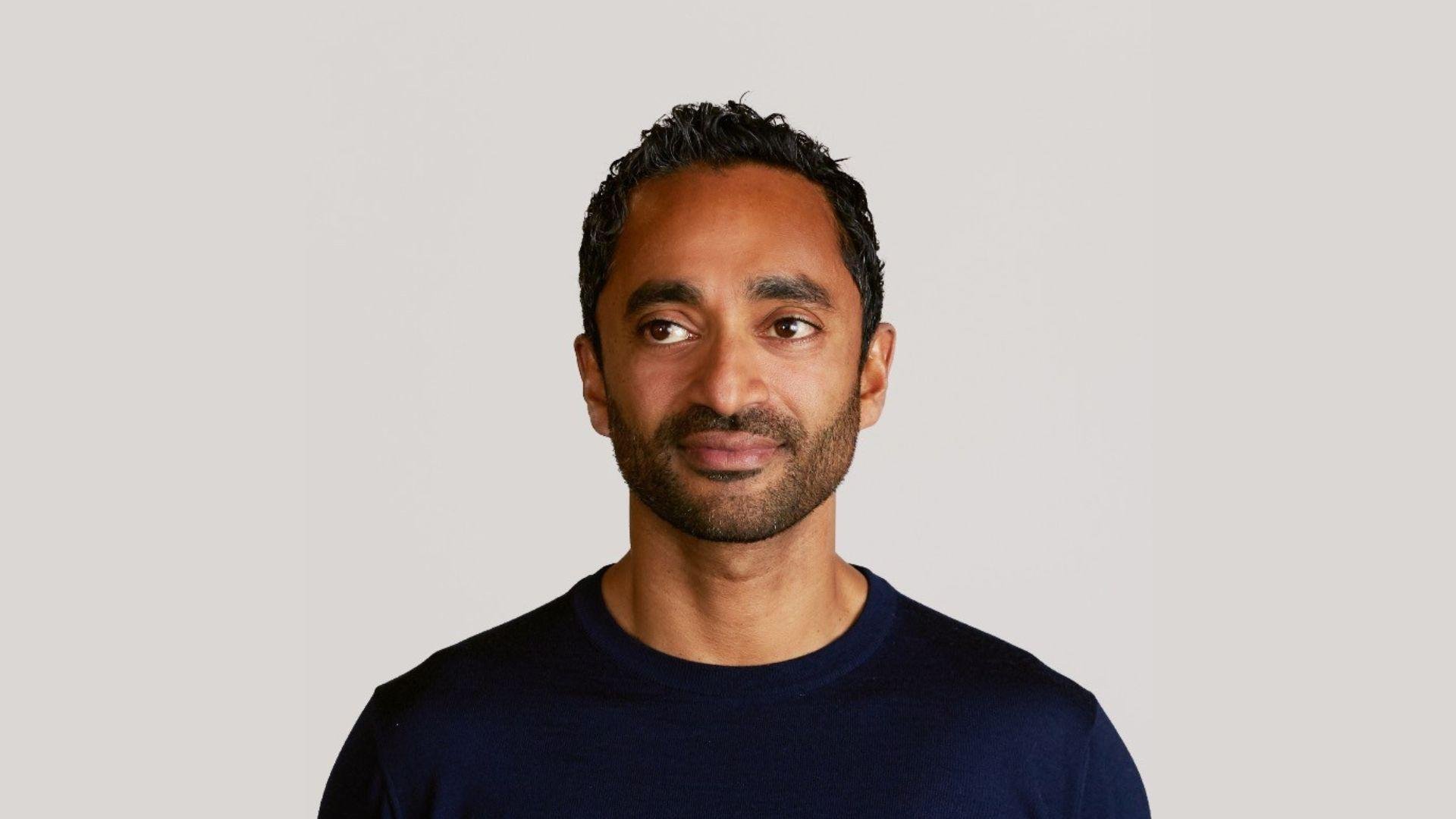
Palihapitiya argued that the debate carries a cultural dimension, emphasizing the influence of “woke” policies on migration.
On X, he engaged his followers with a query: “[Are] the major differences between these two groups only ideology? Or is it something else like genetics, health, etc. etc. that I’m not understanding?”
Palihapitiya’s Previous Controversies

Palihapitiya, who is also a minority owner of the NBA’s Golden State Warriors, previously caused significant controversy with his comments on the Uyghur situation in China.
On his All-In Podcast, he stated, “Nobody cares about the Uyghurs.” Following these remarks, the Warriors’ public relations team distanced the franchise from Palihapitiya, emphasizing that his views do not reflect those of the team.
The Fallout of Palihapitiya’s Remarks

During the podcast, Palihapitiya repeatedly asserted, “Nobody cares about what’s happening to the Uyghurs, okay. You bring it up because you really care, and I think it’s nice that you really care, the rest of us don’t care.”
This blunt dismissal of the Uyghur issue led to significant backlash, with his co-host David Sacks attempting to moderate the discussion, but to little avail.
Palihapitiya’s Attempt at Clarification

The backlash to Palihapitiya’s comments was swift and widespread, leading him to address the issue on X, formerly known as Twitter. He acknowledged, “In re-listening to this week’s podcast, I recognize that I come across as lacking empathy. I acknowledge that entirely.”
He also sought to clarify his stance on human rights, stating, “My belief is that human rights matter, whether in China, the United States, or elsewhere. Full stop.”
Legal Troubles with Clover Health

Palihapitiya, also known for his investments in special purpose acquisition companies (SPACs), faced legal scrutiny with Clover Health Investments Corp, as reported by Reuters.
A lawsuit alleged that Palihapitiya and Clover Health misled investors, particularly about a Department of Justice probe and the true source of the company’s growth.
The SPAC King’s Challenges
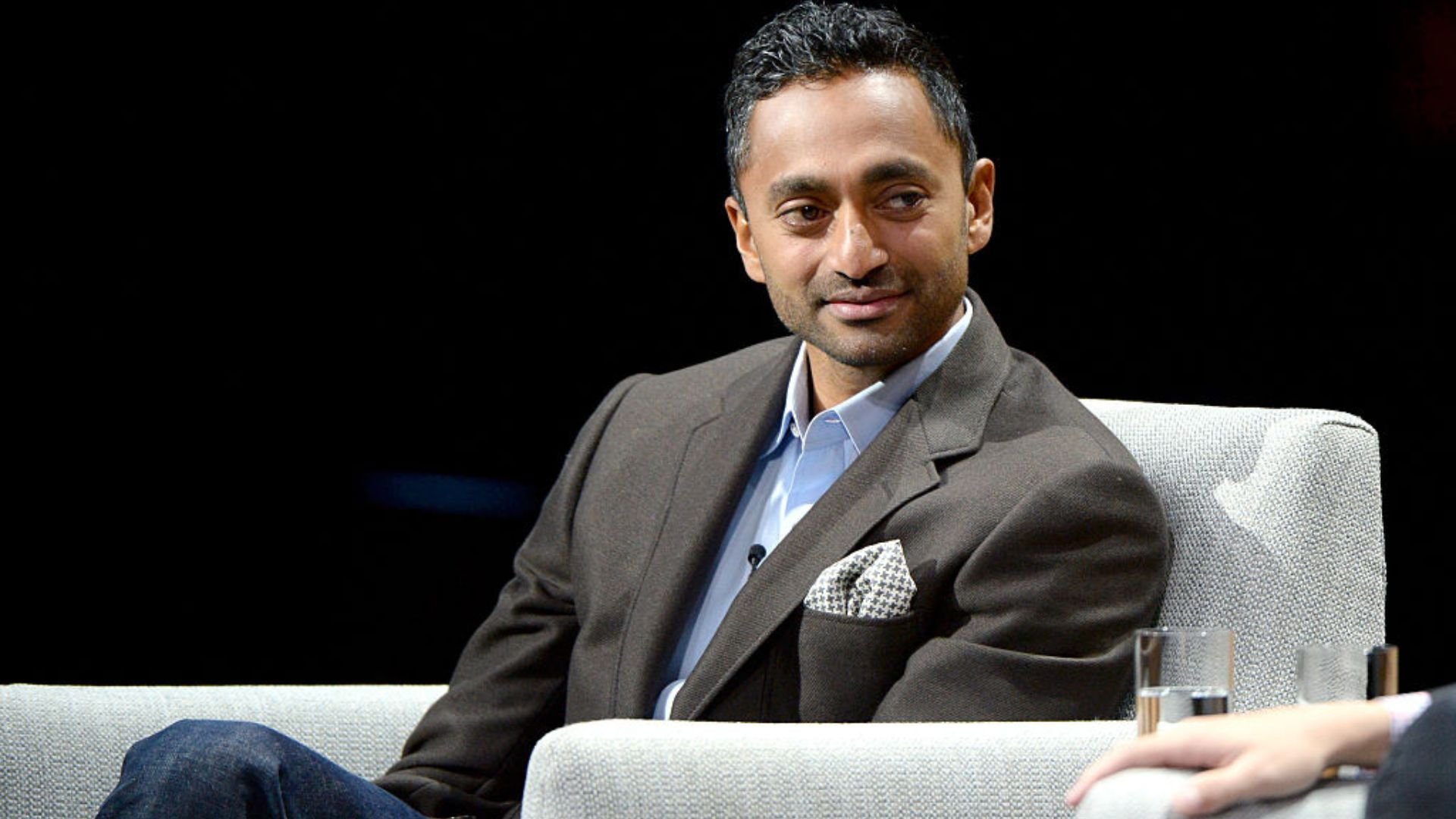
Palihapitiya has been dubbed the “SPAC King” due to his prominent role in such investment vehicles.
However, Reuters reports that his reputation has faced challenges amid broader market scepticism about SPACs. The Clover Health controversy, in particular, highlighted the potential risks and complexities involved in SPAC investments.
Investor Lawsuit Against Palihapitiya

The investor lawsuit against Palihapitiya and Clover Health sought damages for those who owned shares between the announcement of the deal with Clover in October 2020 and the publication of a critical report by Hindenburg Research in February 2021.
Clover Health settled this lawsuit in 2023.
Mark Cuban Fires Back at Chamath Palihapitiya

While several X followers aligned with Palihapitiya’s viewpoint, billionaire Mark Cuban stood out as an exception.
Responding to Palihapitiya’s challenge, Cuban, a self-described independent, asked, “Can you name one woke company that has gone broke?”
Chamath Palihapitiya Shares 452 Companies That Have Failed
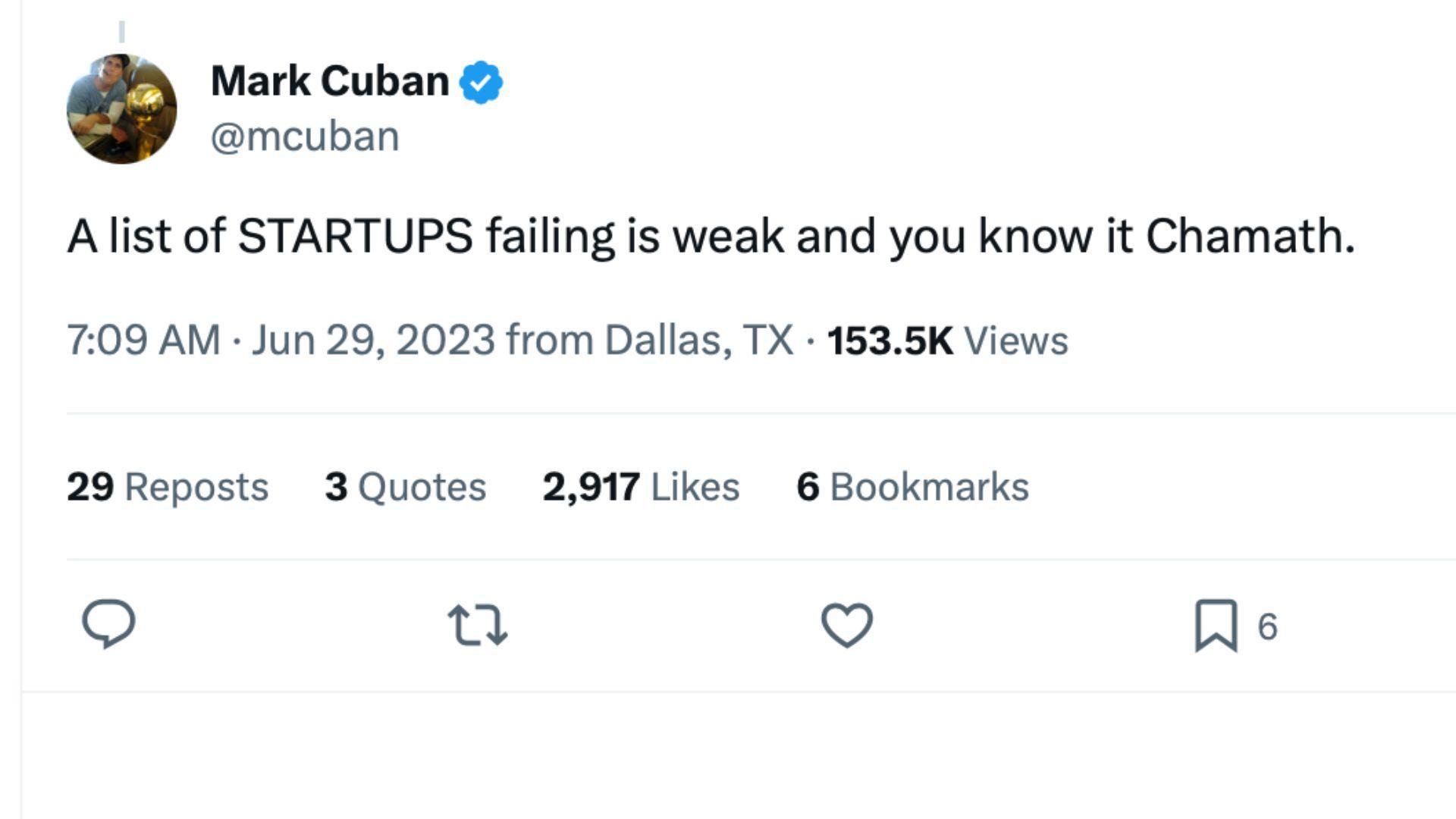
In response, Palihapitiya shared a link that enumerates 452 startups that have experienced failure. “This list isn’t entirely of woke companies, but I suspect a few of these companies fit the bill,” wrote Palihapitiya.
However, Cuban remained dissatisfied, stating, “A list of STARTUPS failing is weak and you know it Chamath.”
Chamath Palihapitiya Presents a Compilation of Companies That Have Gone Bankrupt
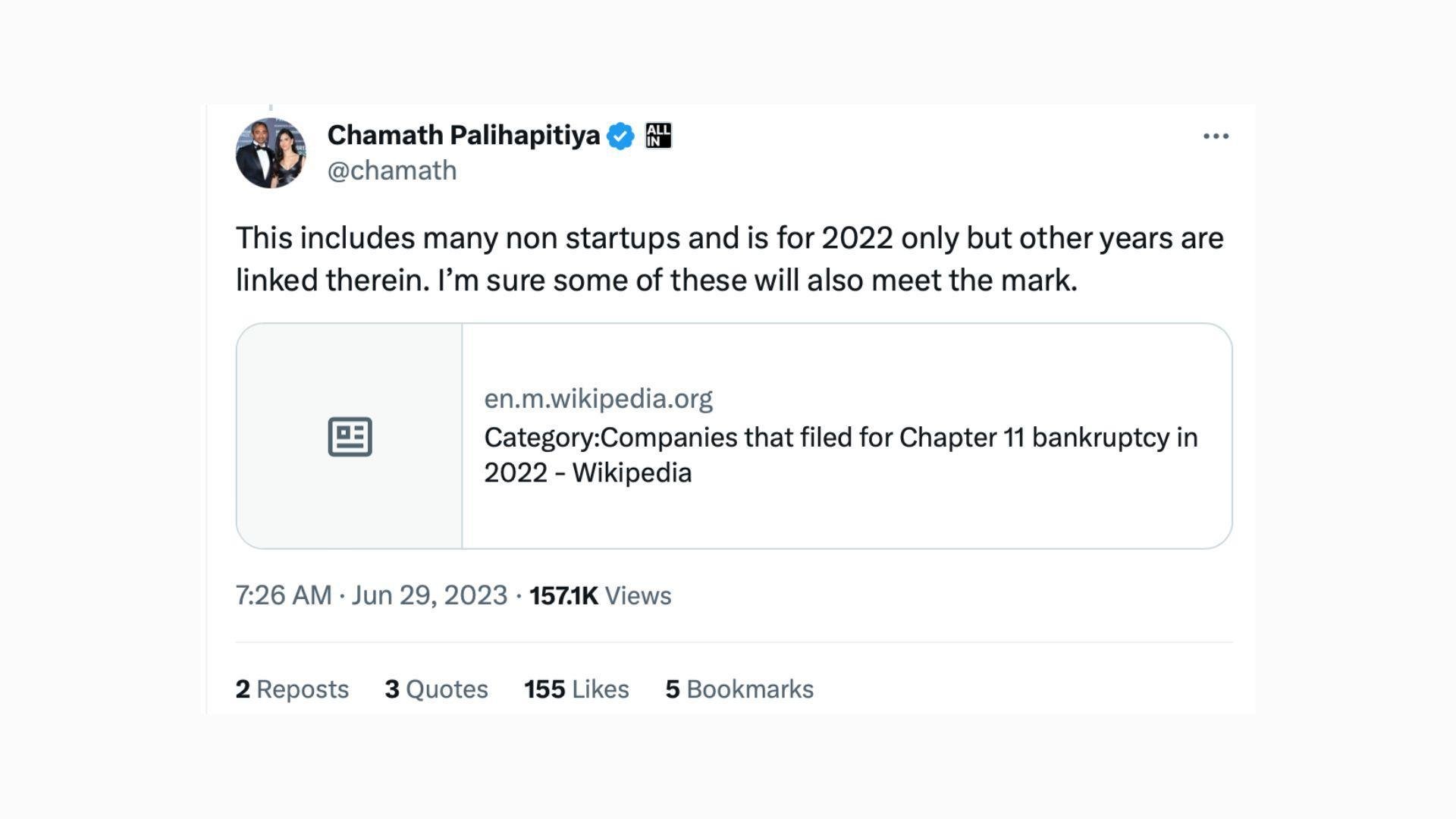
Palihapitiya proceeded to present a compilation of companies that declared bankruptcy in 2022.
“This includes many non-startups and is for 2002 only, but other years are linked … I’m sure some of these will also meet the mark,” wrote Palihapitiya.
Mark Cuban Shares His Own List of Thriving ‘Woke Businesses’

In response, Cuban shared a comparative chart of Walt Disney Co and iHeartMedia.
The chart illustrated Disney’s 2.4% year-to-date increase and iHeartMedia’s 41.6% year-to-date decline. “The cool thing about [the] obvious is that there is always data,” Cuban wrote on X.
Mark Cuban Thinks Companies Being More Liberal Does Not Lead to Failure
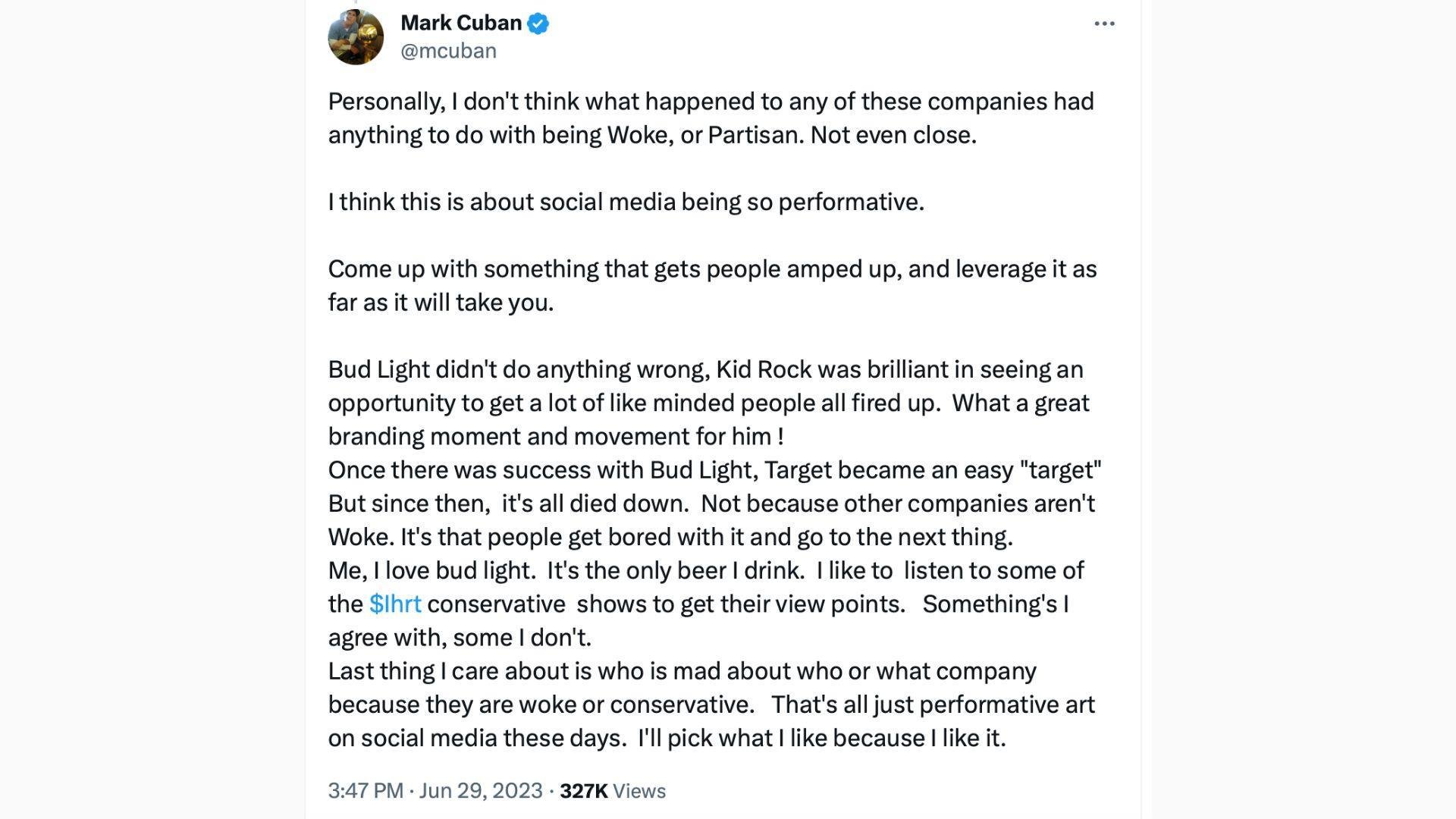
Cuban wrote on X: “Personally, I don’t think what happened to any of these companies had anything to do with being Woke, or Partisan. Not even close.”
“I think this about social media being so performative,” Cuban wrote. “Come up with something that gets people amped up, and leverage it as far as it will take you.”
Cuban’s Previous Defense Of ‘Woke’ Business Practices
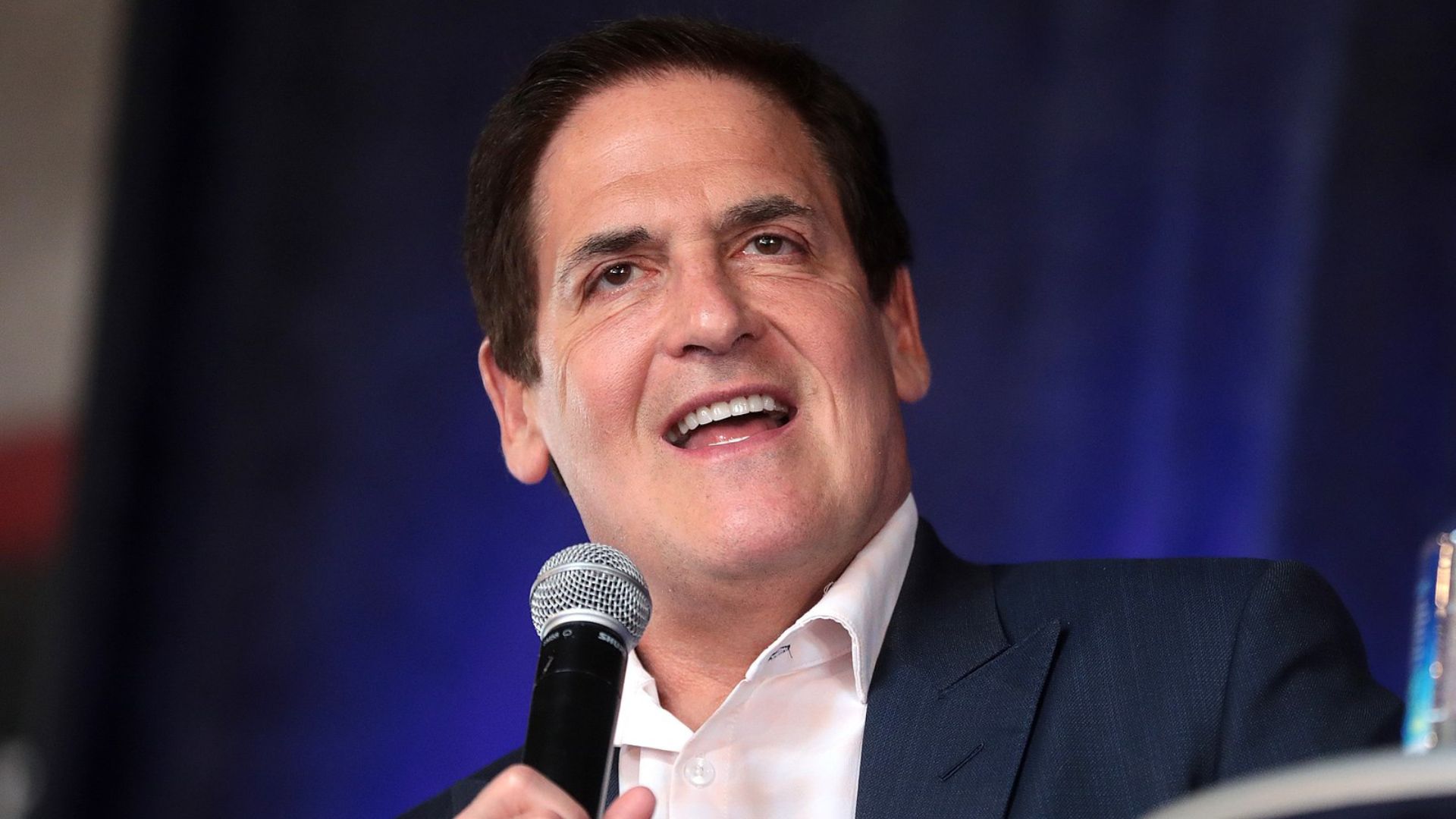
Cuban’s interaction with Palihapitiya is not the first time he has jumped to defend ‘woke’ businesses. He previously articulated this stance in an interview with the Pittsburgh Post-Gazette (via Forbes), highlighting the importance of aligning with future customers and showing concern for their values.
Cuban emphasized that being “woke” is good for business, citing the example of major U.S. companies that support LGBTQ issues.
The Bud Light Boycott and Business Impact

The issue of “wokeness” in business came to the forefront with Bud Light, which faced a boycott after sending a customized can to transgender TikTok star Dylan Mulvaney. Following the backlash, Bud Light experienced a significant drop in sales.
In response, Kevin O’Leary, Cuban’s fellow Shark Tank judge, criticized the marketing move on Fox News, calling it “bad business.” He linked the decline in Bud Light sales to its marketing decisions.
Cuban’s Response to Criticism
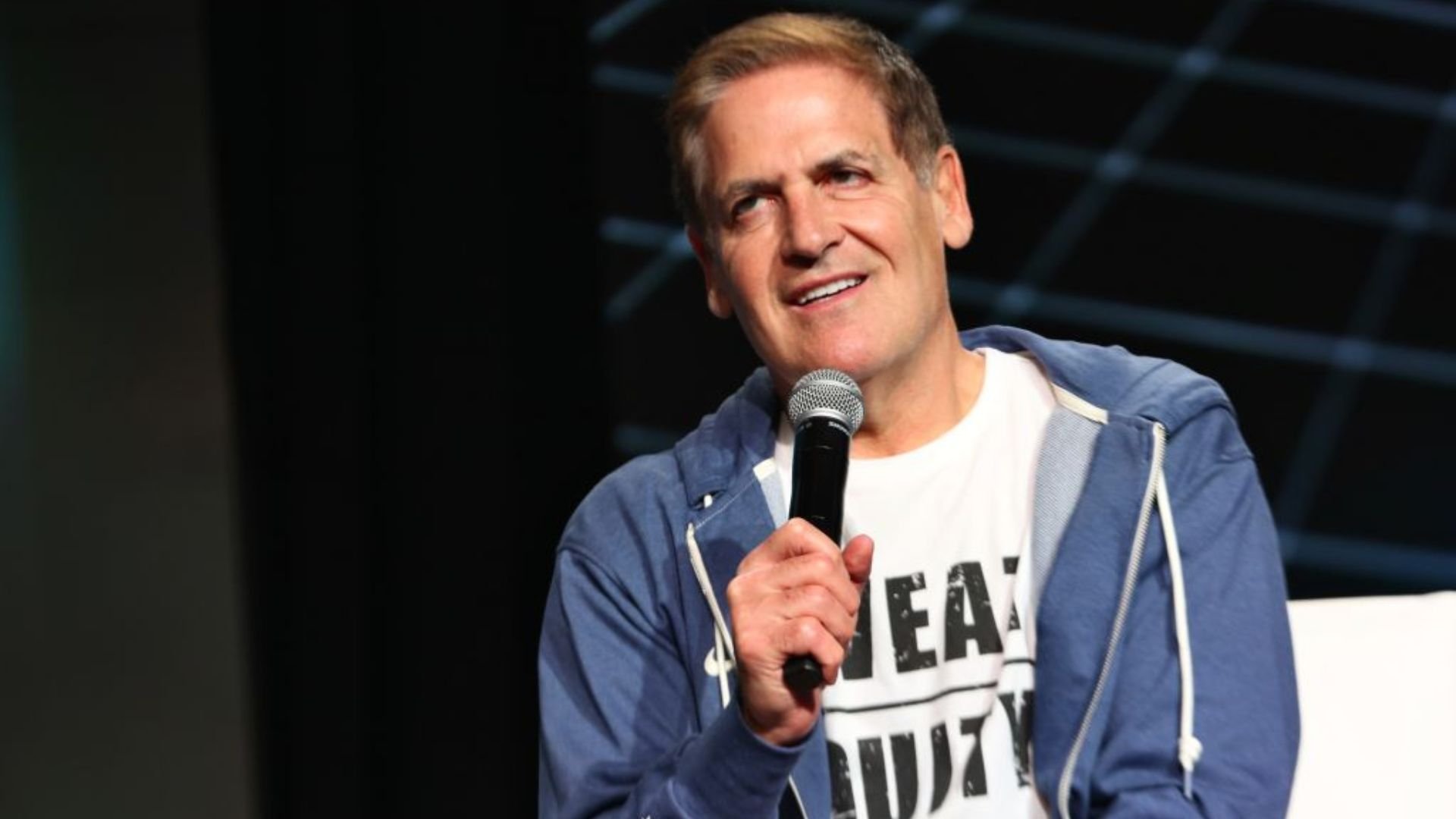
Despite the controversy and criticism from conservative figures, Cuban maintained his stance on the importance of inclusive business practices.
Michigan Live reported that Cuban argued that short-term fluctuations in market cap or sales do not detract from the long-term value of being inclusive and supportive of diverse communities. Cuban sees this approach as not only ethically sound but also strategically beneficial for businesses.
Debate Over Corporate Wokeness
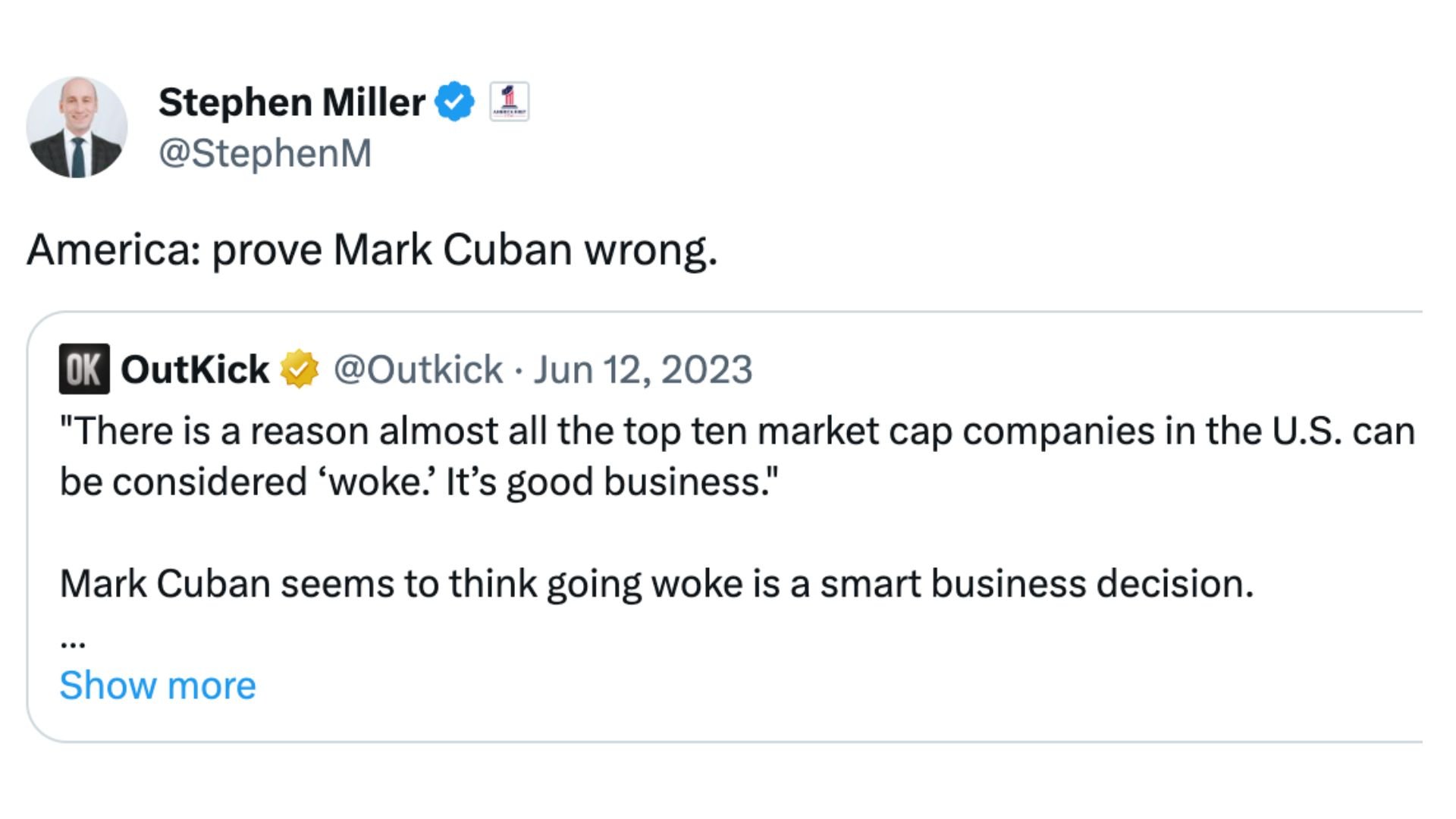
According to Forbes, Cuban’s advocacy for “woke” business practices sparked a heated debate among various public figures.
Conservative commentators like Ben Shapiro and former Trump advisor Stephen Miller voiced their opposition to such practices, advocating for continued boycotts of companies they perceive as overly “woke.”
Cuban’s Business Philosophy and Impact

Cuban, with a net worth of $6.2 billion according to Forbes real-time net worth tracker, advocates for a business approach that emphasizes diversity and inclusivity.
He believes in mirroring the diversity of a company’s customer base within its workforce and aligning with their values. Cuban’s business ventures, including owning the Dallas Mavericks and co-founding Cost Plus Drugs, reflect this inclusive and socially aware philosophy, as highlighted by Forbes.
Cuban and Palihapitiya: Contrasting Billionaires
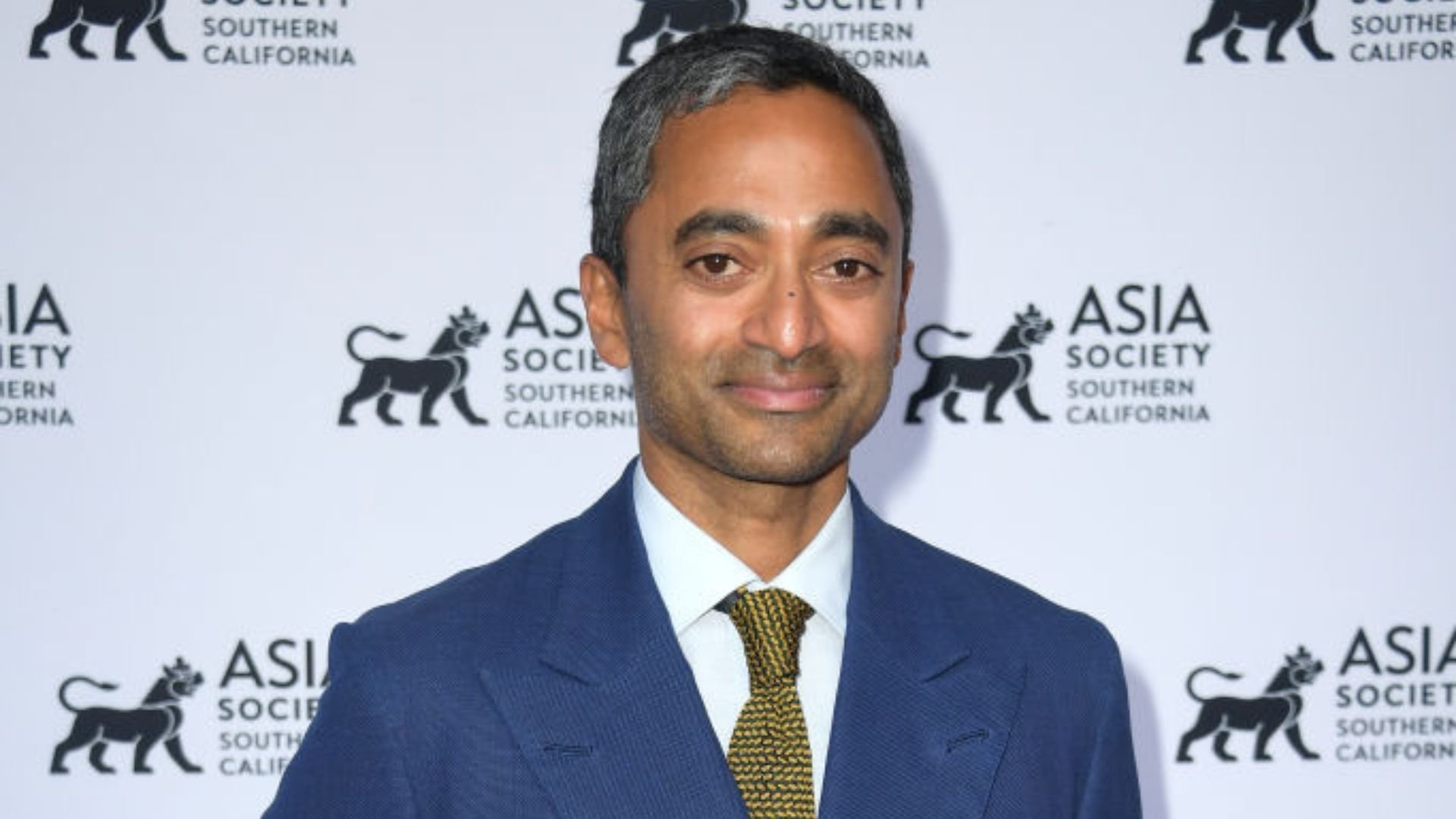
The narratives of Palihapitiya and Cuban offer contrasting insights into the roles and responsibilities of billionaires in today’s society.
While Palihapitiya faced controversy over his comments on international human rights issues, Cuban has been vocal about the importance of inclusive and socially responsible business practices. Both billionaires, through their actions and statements, influence public discourse on key social and economic issues.
